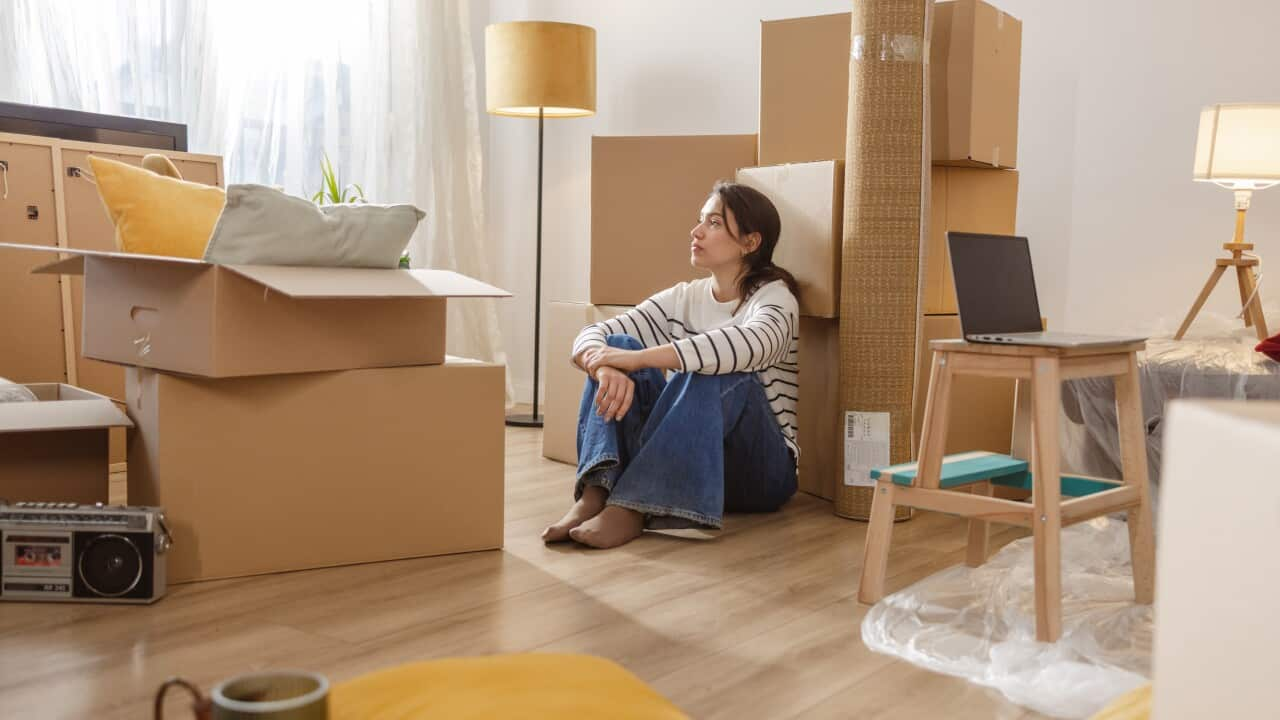Australians are being forced to rent for longer, despite most saying they would prefer to own their homes for the long-term stability, ability to make modifications and freedom to own pets.
A new report from independent national research network the Australian Housing and Urban Research Institute (AHURI) has looked at the and preferences.
While the majority of Australians , that number decreased across all age brackets from 2011 to 2021 (except for Australians aged 80 years old and over).
For many Australians, renting was once considered a transitional state on the way to home ownership — but that's no longer the case, the authors wrote.

Source: SBS News
The cost of homes in Australia is seen as the greatest barrier to home ownership for renters, with nearly 60 per cent saying they were "not confident at all" of ever being able to afford to buy a home.
House prices continue to climb to levels unaffordable for many Australians on the average wage.
Australian median wages increased by 24-30 per cent over the past decade, according to the Australian Bureau of Statistics.
Meanwhile, some median house prices have grown at two or three times that rate over the same period.
In Victoria, for instance, wages have increased by 27 per cent since September 2014. Over the same period, median house prices outside of Melbourne have risen by 100 per cent.
The AHURI report found the key motivations for renting were financial, with 45 per cent of respondents saying that they were unable to afford anything appropriate and 43 per cent saying they didn't have enough money for a deposit or down payment.

Source: SBS News
Still prefer to own
Among renters, the vast majority (80 per cent) say that owning a home is the ultimate goal. However, around 60 per cent say they are unsure if they will ever be able to afford to buy a home.
The preference for owning is being driven by concerns for quality of life, including long-term security, housing quality and conditions, the ability to modify their own homes, and the freedom to own pets.
To secure a higher quality of life while renting, the report also found people are willing to pay more for the following:
- Above minimum standards such as insulation or heating and cooling ($127 more per week)
- A guarantee that rent cannot be increased by more than 5 per cent every 12 months ($77 more per week)
- The ability to extend a lease indefinitely ($72 more per week).

Source: SBS News
"It might mean that we begin to look at the quality of life in rentals because there's not really a reason why it shouldn't be as good as home ownership," said Baker, who is a researcher at the Australian Centre for Housing Research at the University of Adelaide.
How can Australia improve the lives of long-term renters?
States and territories have amended some key legislation to address tenants' concerns in recent years.
In September, NSW joined several other states and territories — including Victoria, Queensland and South Australia — in passing laws making it easier for tenants to keep pets.
Landlords in NSW are now no longer able to forbid tenants from owning pets without giving a reason and refusals must be submitted to the NSW Civil and Administrative Tribunal.
The majority of states and territories have also now banned no-grounds terminations of leases, meaning landlords can't kick out a tenant during an ongoing lease period or at the end of a fixed-term lease without providing a reason.
Western Australia and the Northern Territory are the only jurisdictions that haven't either banned or severely restricted no-grounds termination of leases.
While banning no-grounds evictions has ensured some stability for some renters, homes still move in and out of the rental market depending on a landlord's circumstances or a decision to sell a property.
Baker said that, on average, the average length of a lease is between six and 12 months and the length of leases can limit a person's ability to "lay down roots", including getting a job in their area or enrolling children in local primary schools.
Dr Chris Martin, a senior research fellow at the City Futures Research Centre at the University of New South Wales, told SBS News that law reform won't be enough to deal with these issues and Australia may need to move away from the "household sector smallholding landlord that currently dominates the Australian private rental sector".
For renters to secure better properties and longer-term arrangements, Martin thinks Australia may need more build-to-rent apartment blocks run by large corporate landlords or the not-for-profit community housing sector.
Martin said this would allow more long-term leases and change the dynamics of landlord-tenant relationships because the former would have a more "professional" and "customer service" oriented outlook.
Such landlords would be more like to ensure "the property is maintained well, that the tenant is enjoying the opportunity to make a home in that place and that they can do that for as long as the tenant likes — and we're still quite a way off that," he added.
LISTEN TO

Cost of Living Secrets: Renting
SBS News
14/05/202419:39
Improving complaints processes
Martin also said the rental experience should be improved by greater regulation and that Australia's tenancy system has so far relied too heavily on "tenants to be the regulator".
"They're the least powerful actor in the whole system but they're the ones who are relied on to regulate their landlords by enforcing their tenancy agreement and then their legal rights," he said.
Martin said that, while some states like NSW are starting to establish more active systems of regulation, there is still a long way to go when tenants and landlords have disputes over issues such as the standards of a property or a dramatic rent increase.
"Generally speaking, our state and territory regulators have been far too passive and leaving things to the tenant to try and enforce their contract in circumstances where that's a really hard ask."










